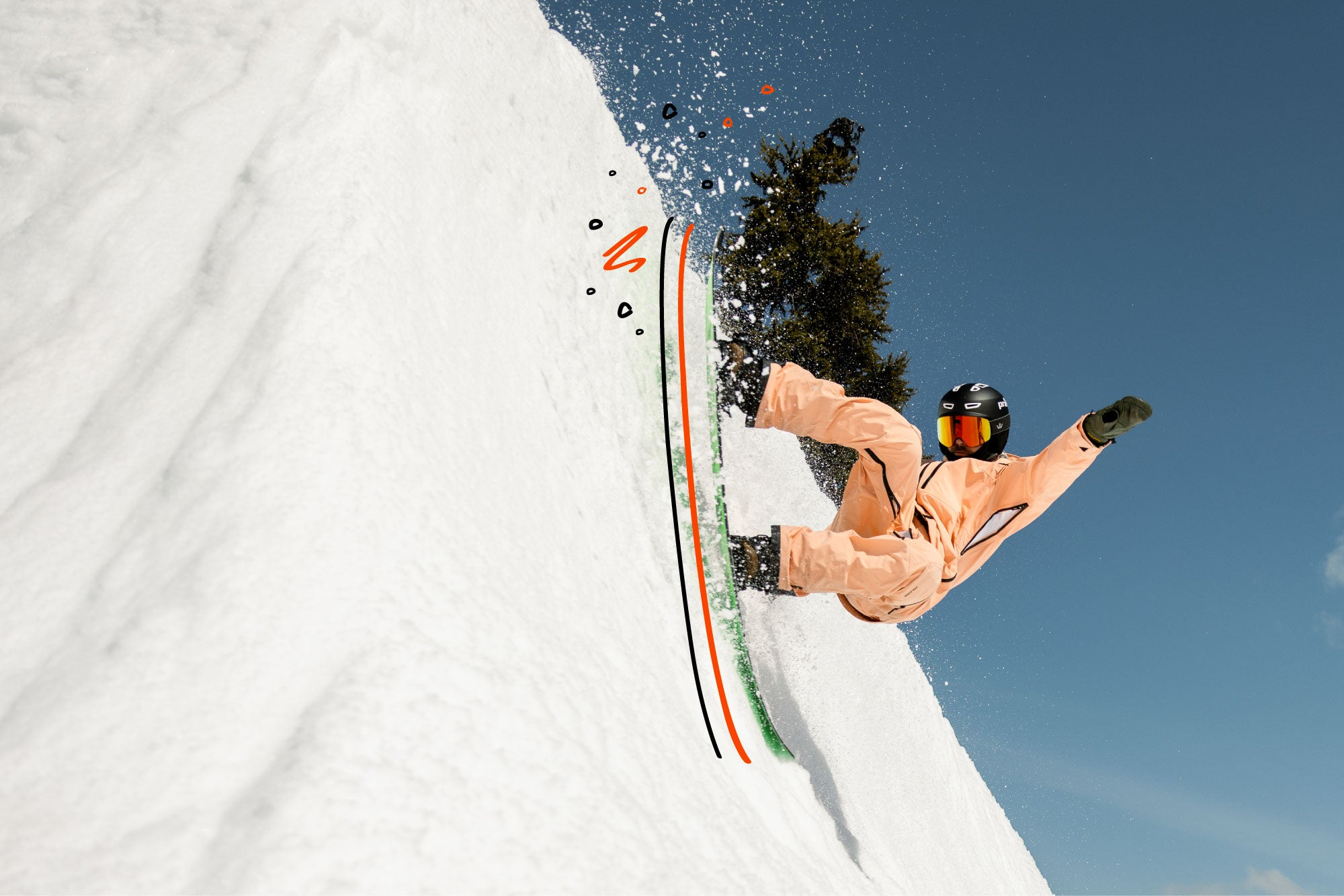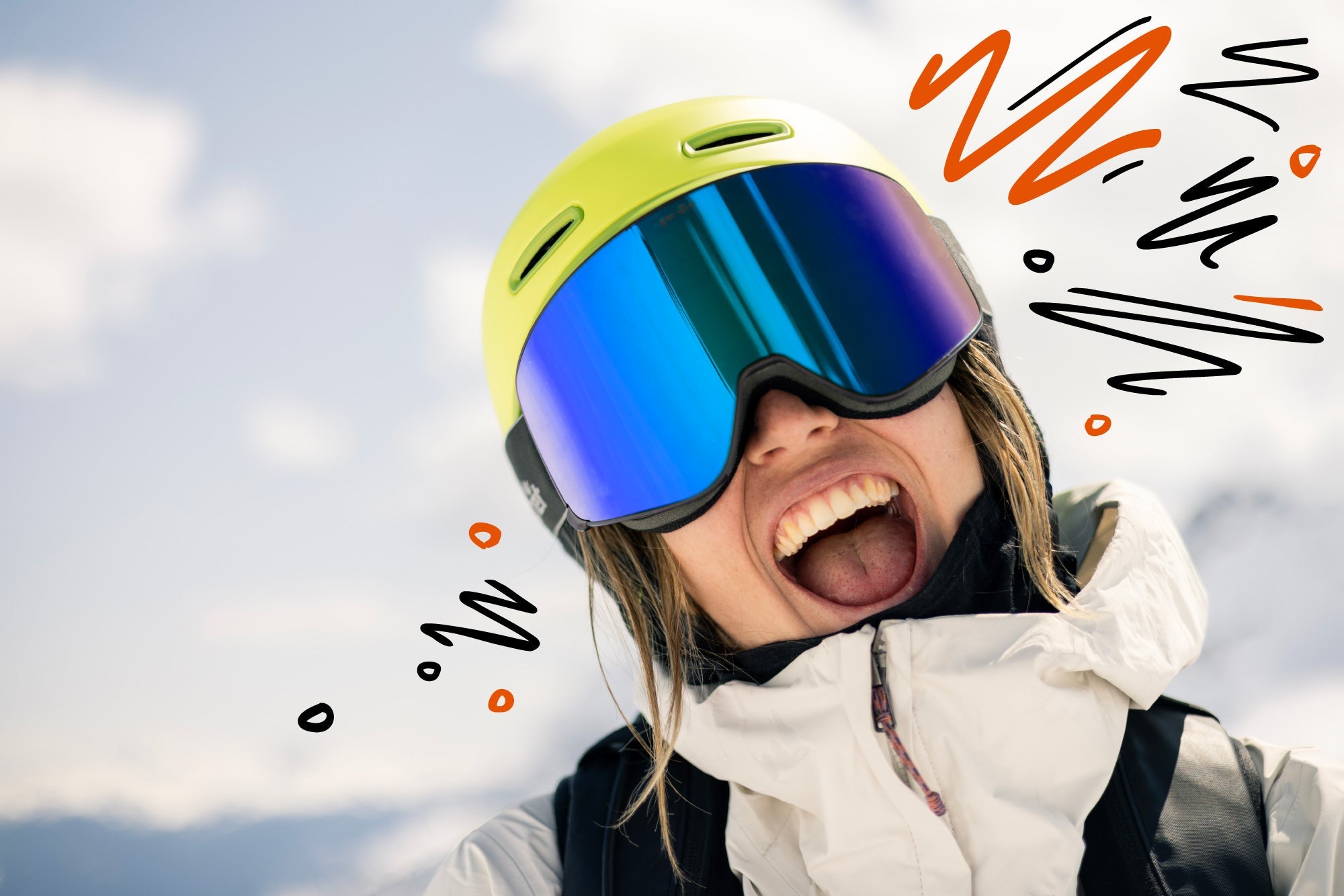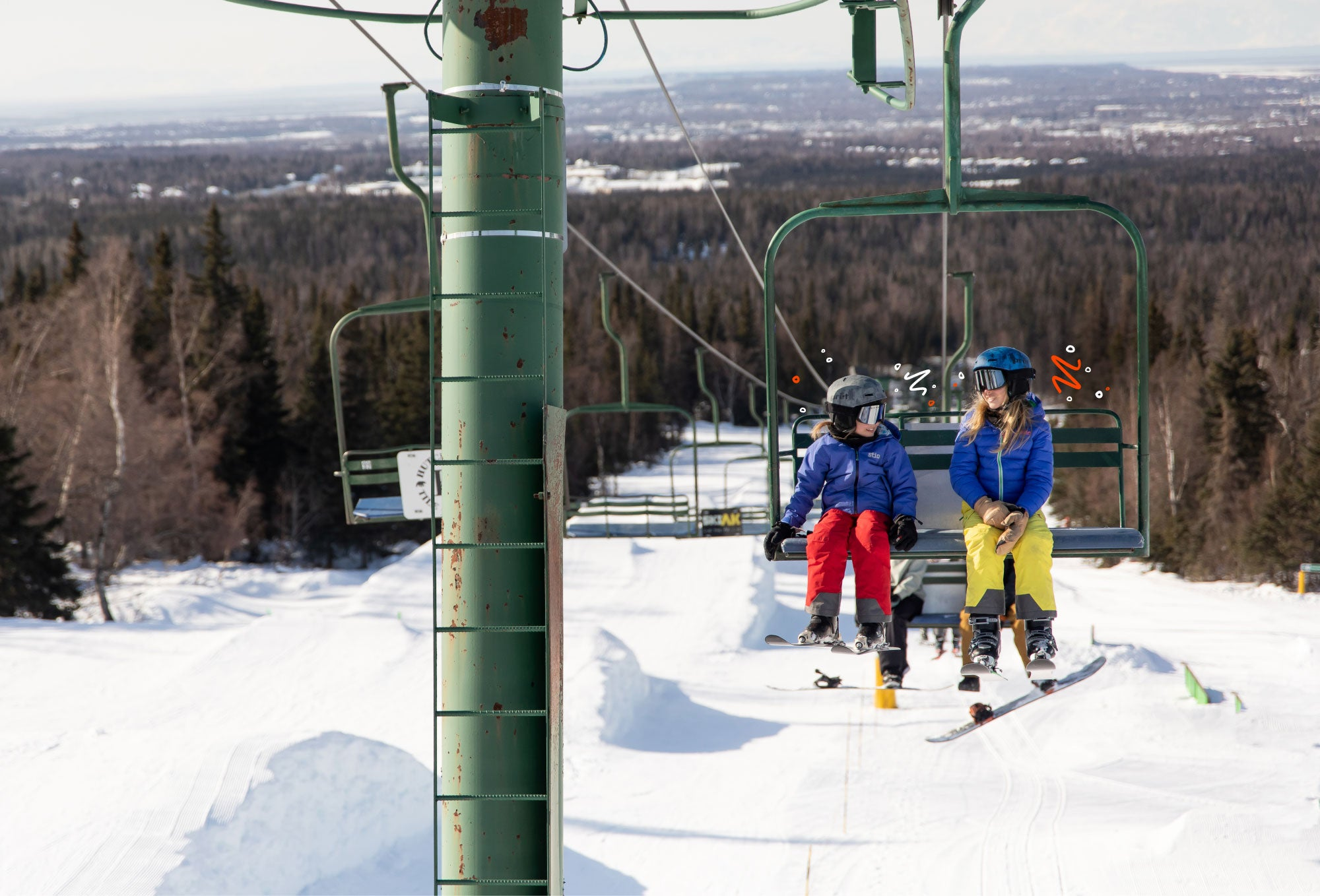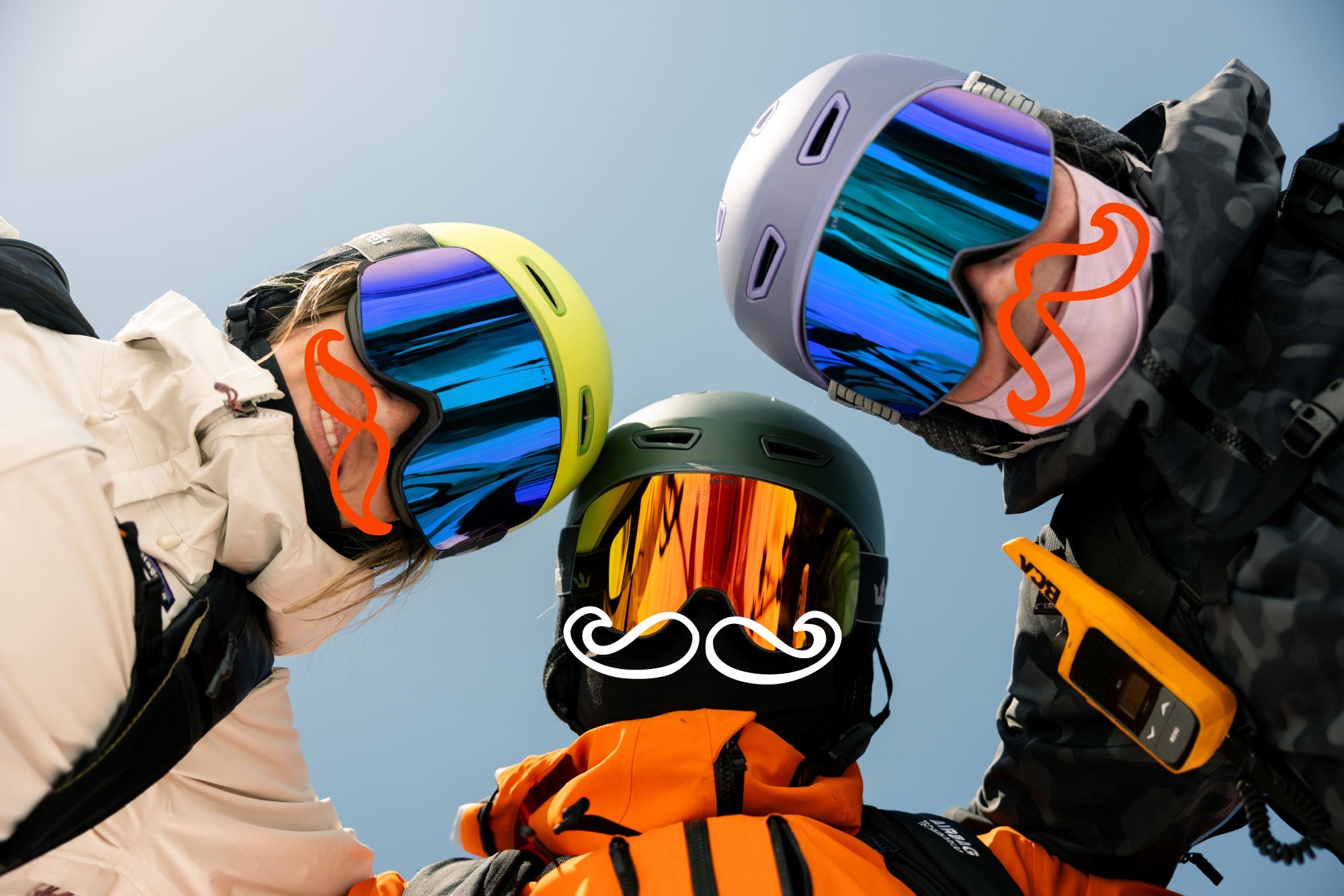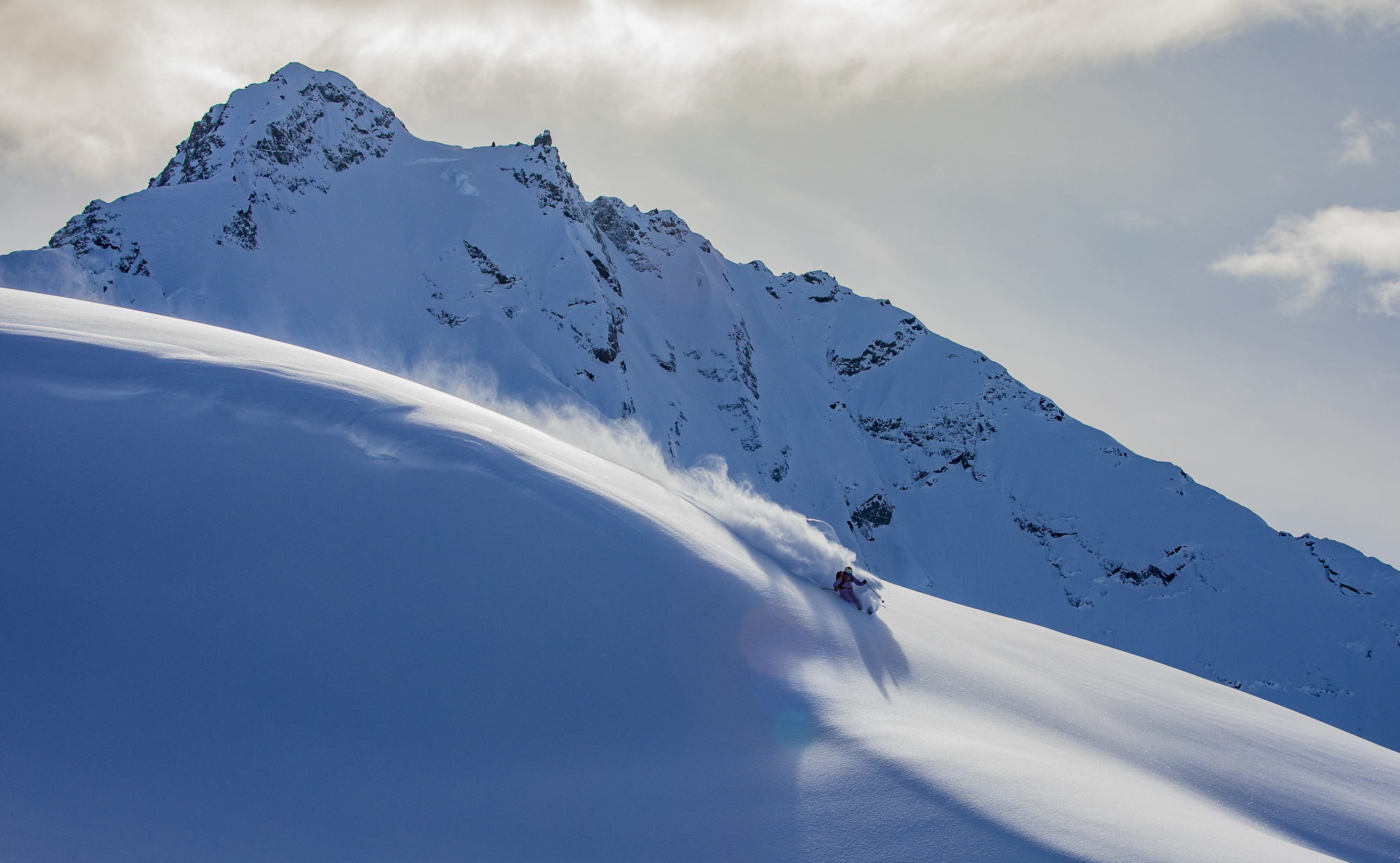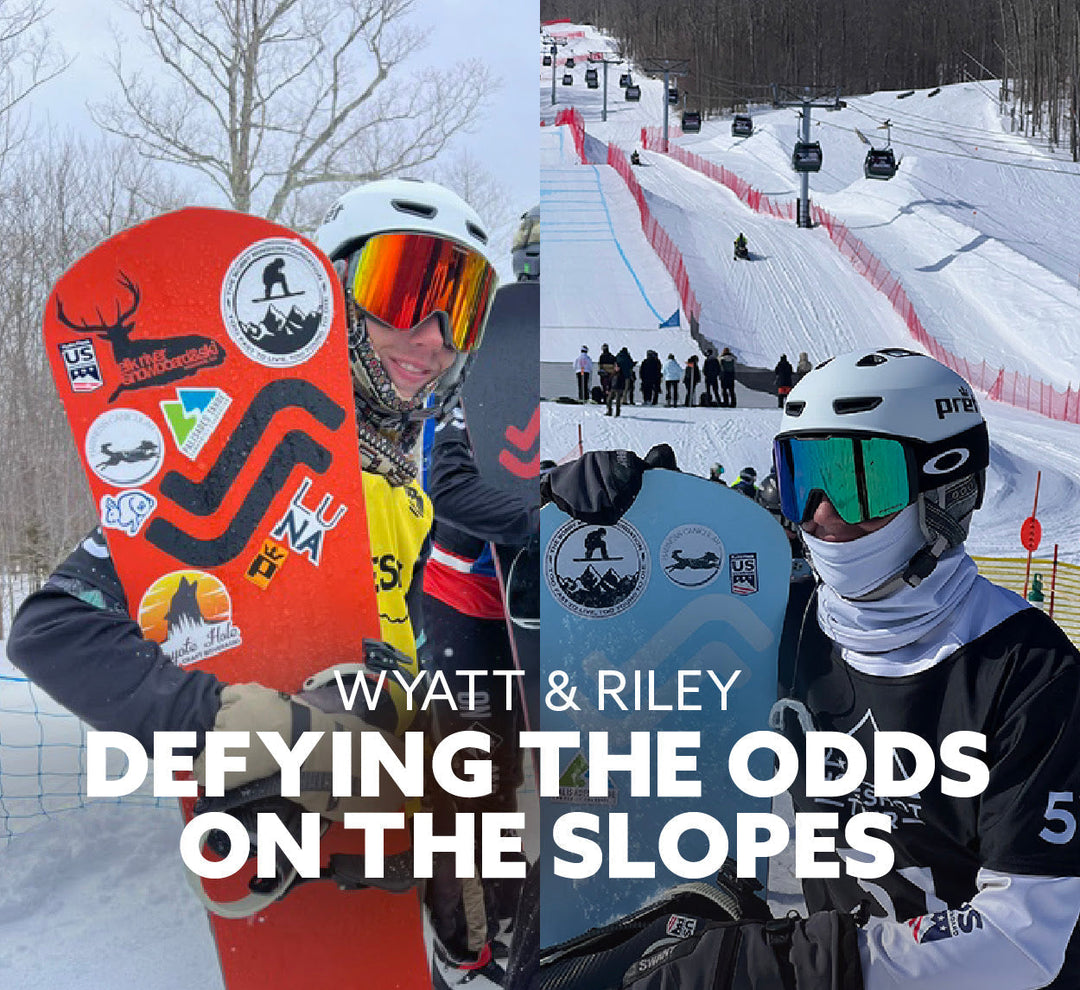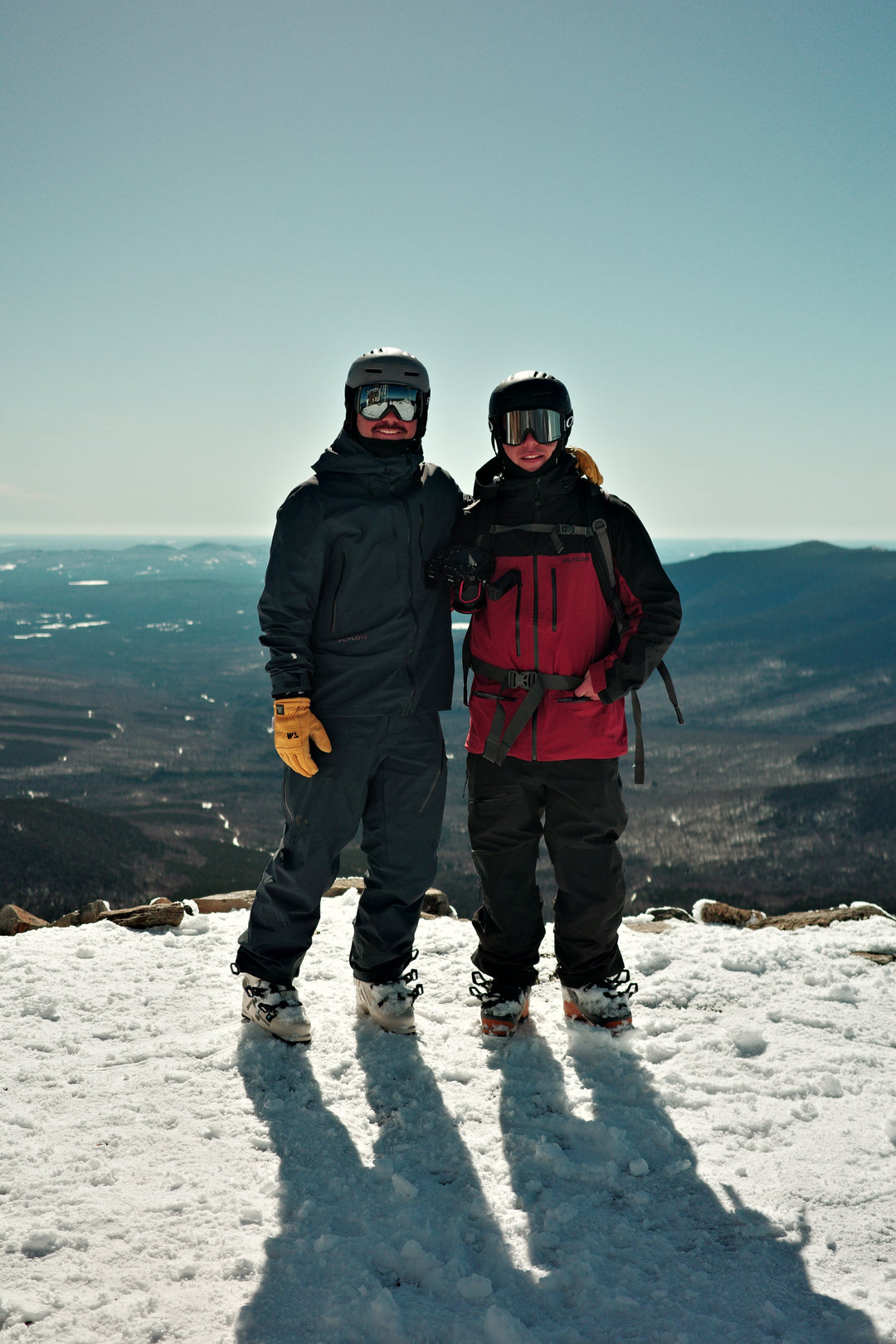Meet Hazel Birnbaum
Origin, Life, Skiing, Traveling and the Freeride World Tour - an interview with Hazel Birnbaum. PLUS her 2016 recap!
Tell me a bit about your background, how did you start skiing and how did it evolve into free skiing competitions.
Hazel - I grew up in the sunny state of Alaska, ha-ha. No really, I’m from Moose Pass, Alaska, where as a kid you spend most of your time outside rambling around in the woods and in the snow. I grew up cross country skiing, ice skating, and fishing mostly. I didn’t start downhill skiing until the age of 11. I should have known it was going to be big deal for me, as the only reason I cross country skied was for the downhill part. I learned to ski at Alyeska Resort, night skiing on straight skis, face covered in Vaseline to keep frostbite at bay. Those were the days…I have always loved being outside in any capacity, and at 18, I moved to Lake Tahoe to be a ski patroller for one winter and well, I fell in love with the Sierras and have been here ever since. I patrolled for 8 seasons at Kirkwood Mountain resort and I largely credit my move to free skiing competitions to my patrolling days at Kirkwood.
As you know we had the “Kirkwood extremes” every season there for many years. Every year I was part of the setup and rescue team for that event, and realized quickly that I wanted to be on the other end. I can distinctly remember being posted up in the middle of the venue, “the Cirque” on standby for rescue while athletes ripped by dropping epic lines I had never even thought of before. I knew then I wanted to be part of free skiing competitions, it seemed so creative and fun.
What was your first freeride competition and how did you feel in the start?
Hazel - My first freeride competition was at Squaw Valley, CA. I distinctly remember being so nervous, I felt like I was going to puke. Everyone was so intimidating with their flashy clothing and here I was in my all-black dirty clothes from working as a patroller. I promptly crashed in the qualifier run, was mortified, and skied through the finish gate to the base area and sat there and cried. I can’t believe I just told you that, but it’s kind of funny really how far you can come .
What did you learn from that event? How did it impact you as a skier?
Hazel - That event, while emotionally devastating, definitely made me hungry for more. I dabbled in more comps but the nerves never really abated. I typically was so nervous before I dropped I couldn’t feel my legs – not super helpful for skiing. I think even these few events helped me to see the mountains in a more creative light. To link up a run with features top to bottom can be challenging, but really fun. If you find the perfect line that plays to your skiing style, it looks effortless and is beautiful.
Tell me about how you qualified for the FWT, about the process, both physically and mentally.
Hazel - I always dreamed about being on the FWT, but didn’t really think it was entirely possible. I took some time off skiing after a knee injury in 2010 and finished up school and worked on some other things for a while. After I graduated, I decided to fully commit to a season competing on the Subaru Freeride Series. I think the Injury helped me emotionally mature and look at skiing differently. Injuries just put things in perspective, help you grow and get over hurdles that would have seemed impossible before. Anyways, I committed to a full season competing. I took me two seasons and another knee injury to qualify for the tour. With every event, I got a bit better with at picking a line, the nerves abated somewhat, and I learned I had the best results when I was having fun.
I went to Chile in 2013 and competed in the North Face Free Skiing Championships, where I won and received the Sickbird award. It was crazy! The 3rd female to ever do so. You always remember your first win. I was pumped and really started to believe I might be able to qualify for the FWT. I tore my meniscus at a comp in Crested Butte, so the entire season I was literally only skiing a warm up run before an event and then the comp run. It was mentally exhausting not skiing all winter except for a couple comp runs. I don’t think I ever wanted anything as much as to qualify for the FWT, and I really think that saved me. Drive is a crazy thing how it will motivate you. I ate and slept with qualifying on my mind. My roommates would laugh because I would train to these crazy videos in the living room, screaming things like “I am a ski champion!” “Do your best, forget the rest,” the things you do. After the SFS event in Bozeman, I had finally qualified. I was so emotionally relieved and amazed, but mostly astounded that I did it.
Talk about how your first FWT start felt? What was it like when you arrived at the event, and in the period leading up to the event, what were your emotions, mindset and mental state?
Hazel - My first season was last year on the tour (2015). I arrived in Chamonix and it felt like that very first day I competed, I was so intimidated by all the other riders, the staff, the mountains, you name it. I felt like a fish out of water. I really just didn’t want to end up last. I wanted validation that I belonged on the tour and last place would have crushed me. We do a bib draw at every event, and women skiers were running last out of all the riders and I drew the last number for women skiers. This meant I was going to drop very last for all 60+ athletes. I remember being in the start gate and thinking well, here I am, I can’t feel my legs again, and there is a giant camera in my face and a helicopter buzzing overhead. When the announcer started the 10-second count until I dropped, I thought I might pass out or just freeze and not even move. I don’t think I ever want to relive that moment ha-ha, but when it comes time, all of the extra stuff just fades out and you do what you’re meant to do, ski. It’s an incredible feeling – it is exactly where I am meant to be at that moment. When you get through the start gate you just want more. It’s crazy. If you don’t do as well as you would like, you want more. If you perform well, you want more. It’s addicting. I ended up 4th at that event and I was so relieved and mostly just wanted to push myself further and harder at the next event. Like I said, it’s addicting.
How did it feel when you were in the start for that event, what mental preparation had you done and how did you focus?
Hazel - Mental prep. Honestly, it’s pretty simple. I repeat the mantra that I deserve everything good in my life, and if I want something bad enough, I can make it happen. The power of positivity is a simple concept, but a tricky endeavor at times.
Talk about risk and fear. Does fear motivate you? How do you mentally prepare for risk?
Hazel - Fear and risk are tricky. They are different for everybody. Fear and risk are very present in free skiing they are behind almost every decision I make on some level. One day, I may be totally afraid of something that yesterday I was totally fine with. Fear changes based on your experiences. As far as fear motivating me, I’m not sure if motivation is the right word as I am constantly trying to overcome it. I use fear more as a boundary to assess risk. For instance, if I have chosen something to ski in a competition that scares the hell out of me, it may not be the right choice. That fear is a guideline; I want to dabble with it, but if I am totally engrossed in it I’ve gone too far, which usually means the risk is too great.
We all take risks; it’s the ability to manage those risks which will give you longevity in your sport. By knowing myself as an athlete, what I’m good at, if I can make quick decisions or not helps me manage my personal risk. Like fear, I have to dabble with risk and my level of risk may be totally different than the next person, but finding a balance or knowing where your personal line is can mean the difference of an amazing day pushing yourself or catastrophe. “Over the line Donny”! You don’t want to be over the line, just right next to it.
Mental prep: I think this is just something that comes with time and experience. After making many decisions in many situations, after injuries, after emotional highs and lows, you get to understand your personal risk level. That’s the one thing that I worry about with such a huge presence of FWT Junior athletes. I feel like they are highly skilled, but still learning risk management.
Tell me about the scariest moment you’ve had competing on the FWT and the lessons learned from that, and how you dealt with any “demons” that might have played with your mind after that moment/experience.
Hazel - Last year, the second event of the season was at Fiberbrunn, Austria. It was really cloudy during the inspection day, the day where we decide what line we are going to ski down the mountain, and I couldn’t really see the venue very well. I chose a line with a big air up top, one in the middle over a very exposed cliff band, and then a straight-line through some rocks out the bottom. On the day of the event, the sun came out and I quickly saw the tops of all the features were covered with a forest of sticks and stubs, which would make it very difficult to have a solid takeoff and land well. I didn’t change my line, even though I saw how bad the jumps were, rookie mistake. I aired my two upper features cleanly and as I entered the bottom, I caught my tip on a shrub, no big surprise there and started to tomahawk over some big rock shelves. In the moment, the “oh crap, this is going to suck” moment, all I can really think is just go limp and it will all be over soon. Well I hit the rock in multiple places, but managed to land in a big pile of stuff that had collected at the bottom. When I landed, the stuff continued to bury me up to my armpits. I was ok, amazingly, just really shaken up. These moments teach you that you are not invincible, and that decision making comes down to a split second, so hopefully you have given yourself all the tools to make a good decision.
When I don’t perform well, or crash during an event, it's usually really hard to take mentally. It takes a lot of courage to repeat the same mantra that “I deserve this and I can make it happen“ when you are tomahawking down a face but that’s probably why I love the sport so much – it’s the challenge of picking yourself up and succeeding, but you have to want it or the person who wants it more will take the cake.
We know athletes physically train for their sports during the summer, but what about working the mind? Do you meditate or use other mental training exercises?
Hazel - I am currently working with a mental coach @zenathelte. We talk a lot about visualization, positive mental space and meditation. I struggle with the meditation aspect, but I really do think when you project positivity, good things will happen in return. I also listen to music right before I drop into a line. When skiing in a competition, you spend many hours leading up to the event planning your line, thinking about all the circumstances, and outcomes that when you’re standing in the start gate, those things are already sandblasted in your mind. Music: dancey, groovy music for me like James Brown makes me forget, be grateful, and just ski.
We all have fears when we ski, maybe they’re of skiing moguls or of steep lines or merely of going fast, what advice can you share with “ordinary” skiers to help them deal with fear and to become better athletes?
Hazel - Fear is a tool, you will never entirely overcome it, but can help shape the way you ski and make decisions. Knowing your limits is very important to staying healthy and safe. But also those limits can help you test the boundaries a bit and maybe dance near the edge of achieving something you never thought possible. Oh yeah, don’t forget to just breathe.




